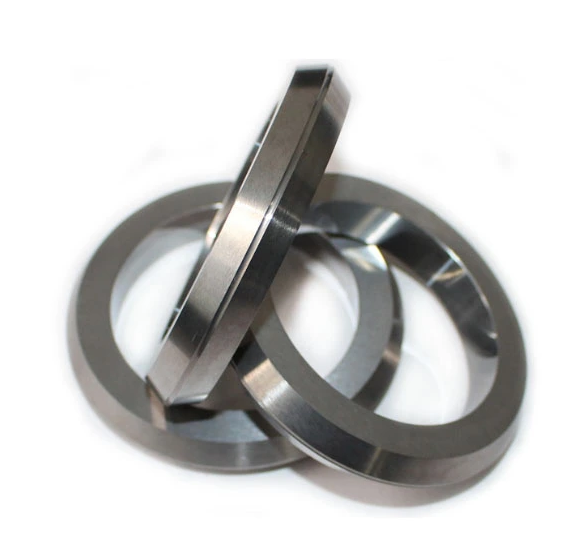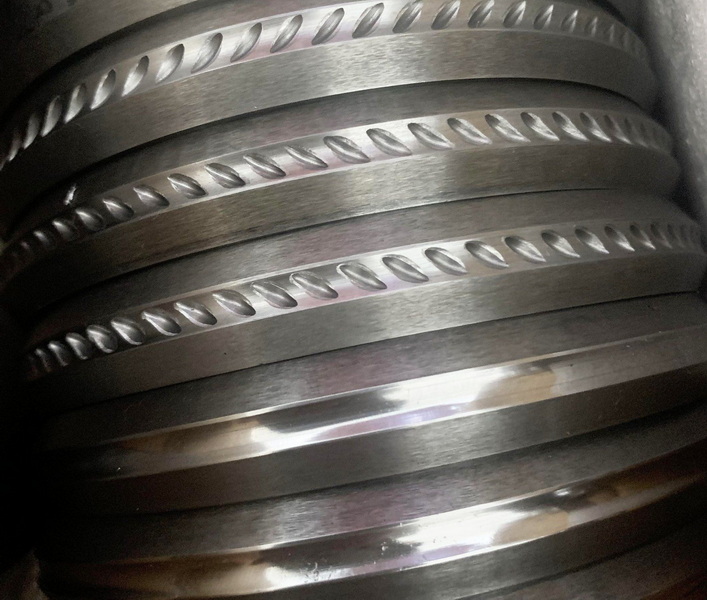Content Menu
● Introduction
● Understanding Tungsten Carbide
>> Properties of Tungsten Carbide
● Advantages of Tungsten Carbide Cold Rollers
>> Durability and Wear Resistance
>> Precision and Quality of Finish
>> Cost-Effectiveness
● Applications of Tungsten Carbide Cold Rollers
● Innovations in Tungsten Carbide Technology
● Conclusion
● Related Questions
>> 1. What are the main benefits of using tungsten carbide rollers in cold rolling?
>> 2. How do tungsten carbide rollers compare to traditional steel rollers?
>> 3. In which industries are tungsten carbide cold rollers commonly used?
>> 4. What innovations are being made in tungsten carbide roller technology?
>> 5. How can manufacturers benefit from using tungsten carbide rollers?
Introduction
Tungsten carbide has emerged as a critical material in various industrial applications, particularly in the manufacturing sector. Known for its exceptional hardness and durability, tungsten carbide is increasingly being utilized in the production of cold rollers. Cold rolling is a vital process in metalworking, where metal sheets or strips are reduced in thickness and improved in surface finish without the application of heat. This article explores how tungsten carbide rollers enhance the cold rolling process, focusing on their advantages, applications, and the innovations driving their use.

Understanding Tungsten Carbide
Tungsten carbide is a composite material made from tungsten and carbon atoms. It is renowned for its remarkable hardness, which is second only to diamond. This unique property makes tungsten carbide an ideal choice for applications requiring high wear resistance and durability. In the context of cold rolling, tungsten carbide rollers provide significant benefits over traditional steel rollers.
Properties of Tungsten Carbide
The key properties of tungsten carbide that make it suitable for cold rolling include:
- High Hardness: Tungsten carbide has a hardness rating of 1600-2000 HV, making it exceptionally resistant to wear and deformation.
- Excellent Wear Resistance: The material's ability to withstand abrasive forces ensures longer service life and reduced downtime in manufacturing processes.
- Thermal Stability: Tungsten carbide maintains its properties at elevated temperatures, which is crucial during the cold rolling process where friction generates heat.
- Corrosion Resistance: Tungsten carbide is less susceptible to corrosion compared to steel, making it suitable for various environments, including those with moisture or chemicals.
Advantages of Tungsten Carbide Cold Rollers
Durability and Wear Resistance
One of the most significant advantages of tungsten carbide cold rollers is their durability. Unlike traditional steel rollers, which can wear down quickly under high-stress conditions, tungsten carbide rollers maintain their shape and performance over extended periods. This durability translates into fewer replacements and lower maintenance costs for manufacturers.
In industries where precision and consistency are paramount, the wear resistance of tungsten carbide rollers ensures that the dimensions of the rolled products remain within tight tolerances. This is particularly important in sectors such as automotive and aerospace, where even minor deviations can lead to significant issues.
Precision and Quality of Finish
Tungsten carbide rollers contribute to achieving high-quality surface finishes on metal products. The smooth surface of tungsten carbide minimizes the risk of surface defects during the rolling process. This is crucial for applications where aesthetics and surface integrity are essential, such as in the production of decorative metal sheets or components.
The precision offered by tungsten carbide rollers also enhances the overall quality of the finished product. Manufacturers can achieve tighter tolerances and better dimensional accuracy, which is vital for components that require precise fitting and functionality.
Cost-Effectiveness
While the initial investment in tungsten carbide rollers may be higher than that of traditional steel rollers, the long-term cost savings are substantial. The extended lifespan of tungsten carbide rollers reduces the frequency of replacements, leading to lower operational costs. Additionally, the reduced downtime associated with fewer maintenance needs allows manufacturers to increase productivity.
When considering the total cost of ownership, tungsten carbide rollers often prove to be more economical in the long run. The combination of durability, precision, and reduced maintenance requirements makes them a smart investment for manufacturers looking to optimize their cold rolling processes.

Applications of Tungsten Carbide Cold Rollers
Tungsten carbide cold rollers find applications across various industries, including:
- Automotive Industry: Used in the production of high-strength steel components and body panels, where precision and surface quality are critical.
- Construction: Employed in the manufacturing of metal sheets and profiles used in building structures, ensuring durability and aesthetic appeal.
- Aerospace: Essential for producing lightweight, high-strength components that meet stringent safety and performance standards.
- Electronics: Utilized in the production of thin metal foils and components for electronic devices, where precision and surface finish are paramount.
Innovations in Tungsten Carbide Technology
Recent advancements in tungsten carbide technology have further enhanced its application in cold rolling. Innovations include:
- Improved Manufacturing Techniques: Advances in sintering and coating technologies have led to the production of tungsten carbide rollers with enhanced properties, such as increased toughness and reduced brittleness.
- Custom Roller Designs: Manufacturers are now able to produce tungsten carbide rollers tailored to specific applications, optimizing performance for various cold rolling processes.
- Integration of Smart Technologies: The incorporation of sensors and monitoring systems in tungsten carbide rollers allows for real-time performance tracking, enabling predictive maintenance and further reducing downtime.
Conclusion
Tungsten carbide rollers play a pivotal role in enhancing the cold rolling process. Their exceptional durability, wear resistance, and ability to produce high-quality finishes make them an invaluable asset in various manufacturing sectors. As technology continues to advance, the applications and benefits of tungsten carbide rollers are expected to expand, further solidifying their position as a preferred choice in the industry.

Related Questions
1. What are the main benefits of using tungsten carbide rollers in cold rolling?
Tungsten carbide rollers offer durability, wear resistance, precision, and cost-effectiveness, making them ideal for high-quality metal production.
2. How do tungsten carbide rollers compare to traditional steel rollers?
Tungsten carbide rollers are significantly more durable and wear-resistant than traditional steel rollers, leading to longer service life and reduced maintenance costs.
3. In which industries are tungsten carbide cold rollers commonly used?
Tungsten carbide cold rollers are commonly used in the automotive, construction, aerospace, and electronics industries.
4. What innovations are being made in tungsten carbide roller technology?
Innovations include improved manufacturing techniques, custom roller designs, and the integration of smart technologies for performance monitoring.
5. How can manufacturers benefit from using tungsten carbide rollers?
Manufacturers can benefit from increased productivity, reduced downtime, and lower operational costs due to the long lifespan and minimal maintenance needs of tungsten carbide rollers.
















